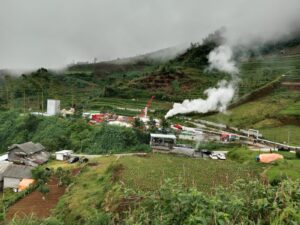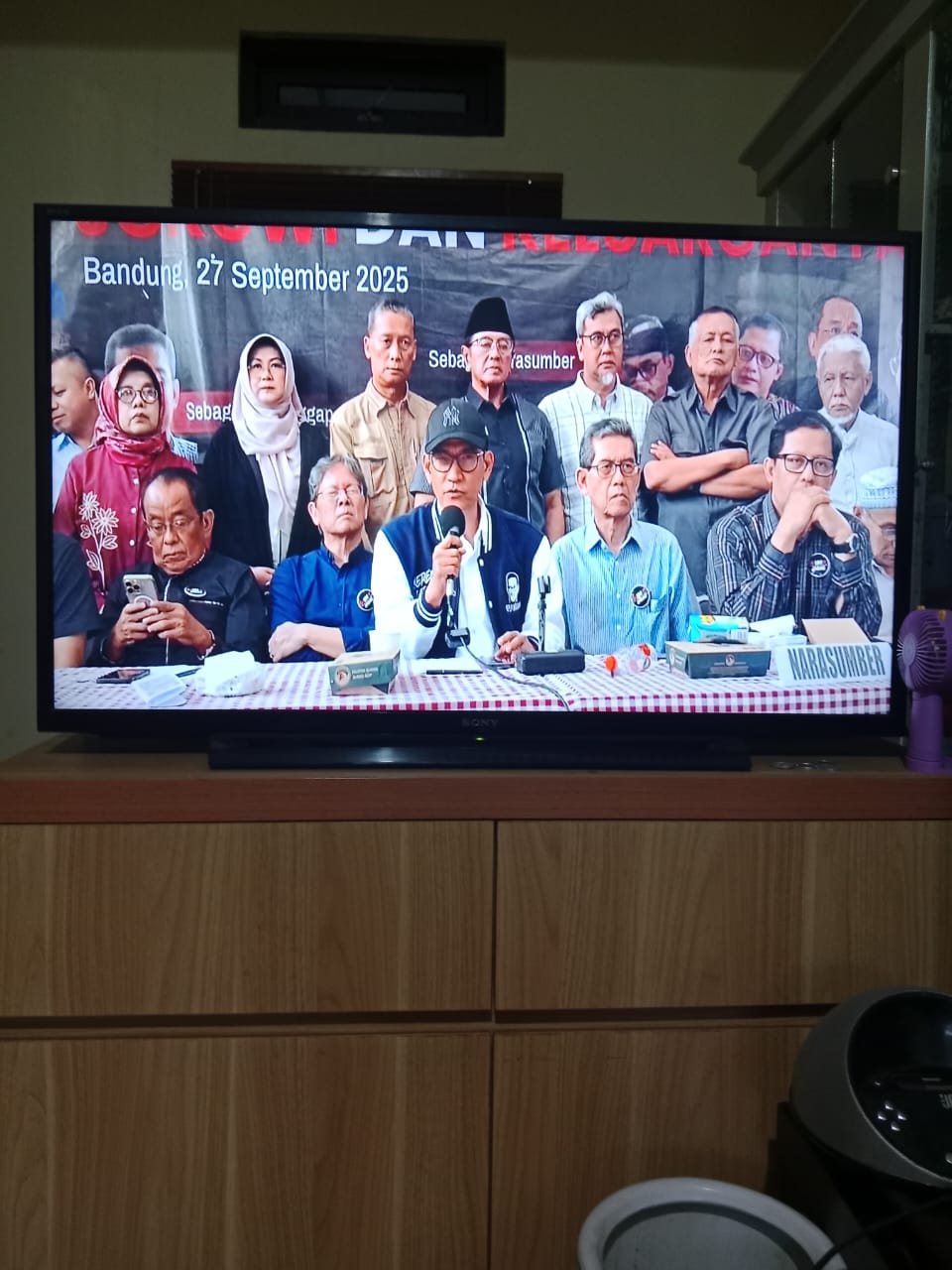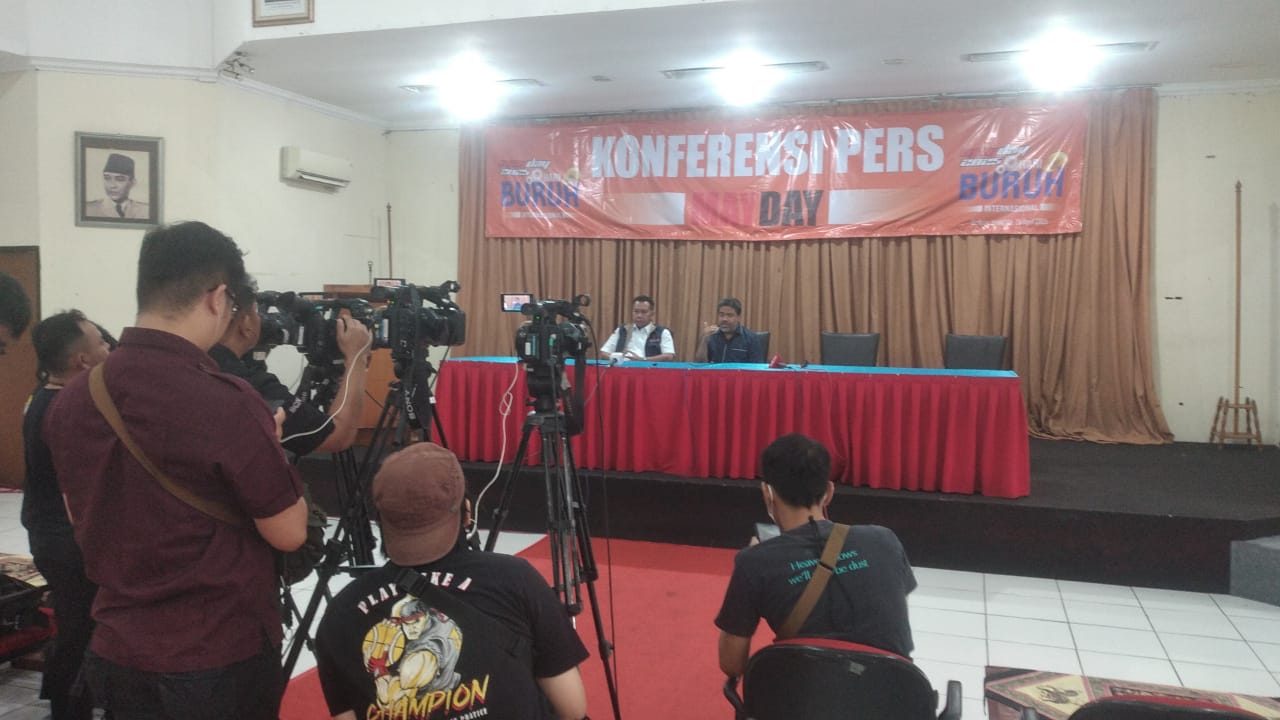
KN. Investment and Downstream Minister/Investment Coordinating Board (BKPM) Chair Rosan Perkasa Roeslani said that there will be investments worth billions of U.S. dollars entering Indonesia in the first quarter of 2025. Rosan said that the ministry was still in talks with several prospective investors who wanted to enter Indonesia. Rosan has not disclosed the exact amount of the investment but said that most of them come from the United States. He said that the investment was expected to begin in the first quarter of 2025.
Investment and Downstream Minister/Investment Coordinating Board (BKPM) Chair Rosan Perkasa Roeslani said that they will accelerate the simplification of investment regulations to mitigate the impact of the trade war between the United States and China.
He explained that the regulatory changes are made to enhance competitiveness, considering several neighboring countries do the same. Furthermore, Rosan mentioned that the acceleration is done to attract more investors. He said this would allow Indonesia to take advantage of the U.S.-China trade war.
The World Bank reported Indonesia’s economic growth at 5.03% in 2024, reflecting stability amid a global slowdown, where average growth was just 2.7%. World Bank Country Director for Indonesia and Timor-Leste, Carolyn Turk, noted that household consumption was the key driver of Indonesia’s growth.
Although Indonesia’s position is currently relatively safer than that of the 14 U.S. trading partners who also have a surplus, Trump’s tariffs on these partner countries will still have an indirect impact on Indonesia. With the additional 10% tariff for China, the government is concerned that Chinese products will flood Indonesia and jeopardize domestic MSME industry and producers.
Donors such as France and the European Union welcomed the news of Germany stepping in to lead the JETP climate funding for Indonesia. Per media reports, Indonesia’s JETP Secretariat had aZconfirmed that IPG member Germany would take over the U.S. leadership role, with Japan remaining as co-lead. France, which had promised to provide 500 million euros (about $520.7 million) in loans, commented on the changing leadership.
“Regarding the future of the JETP, there is still a clear commitment from the international community. We are very thankful for Germany, which is also very committed to this country [Indonesia], with EU’s support, to be on board,” French Ambassador to Indonesia Fabien Penone told reporters in Jakarta.
The European Union and France grant Indonesia with 14.7 million euros or equivalent to IDR 249.01 billion to help Indonesia’s energy transition efforts. French Ambassador to Fabien Penon said that this fund is a form of collective commitment from the European Union and France for a sustainable low-carbon future.
He explained that this grant was given through the Indonesia Energy Transition Facility (IETF) program designed by the French Development Agency or Agence Française de Développement (AFD) to support the implementation of Indonesia’s energy transition under the Just Energy Transition Partnership (JETP).
Trade Minister Budi Santoso underlined the need for domestic business actors to diversify their export products in the wake of Trump’s decision to levy higher duties on goods imported from Canada, Mexico, and China. “It is important that we diversify our products, focusing on goods that are not produced in the United States,” he said.
Chinese firms control about 75% of Indonesia’s nickel refining capacity, raising concern over supply chain control and environmental risks, Washington-based global security nonprofit C4ADS has said in a report.

US President Donald Trump’s decision to revoke electric vehicle incentives has raised concerns over its impact on Indonesia’s vital nickel sector and China’s dominance widening in the Southeast country’s EV supply chain.
Trump targeted EVs immediately after he was sworn in on January 20, annulling a 2021 executive order by former president Joe Biden that called for half of all new vehicles sold in the United States to be electric by 2030.
While Biden’s policy was not legally binding, it prompted domestic and foreign carmakers to boost investments in EV technologies, creating ripple effects across Southeast Asia’s vehicle and other related industries.
Indonesia has amended a law governing the Southeast Asian nation’s powerful state-owned enterprises, laying the legal foundation for a new agency to manage billions of dollars in state assets while seeking investments domestically and potentially overseas.
The new framework paves the way for Daya Anagata Nusantara, or Danantara, to consolidate Indonesia’s state firms and supervise their operations, investments and dividends, State-Owned Enterprises Minister Erick Thohir said in parliament.
The agency, which will be overseen by ministers and report directly to the president, will seek to help the administration achieve its goal of boosting economic growth to 8% within Prabowo’s term, Thohir said. State Secretary Minister Prasetyo Hadi added that the new entity would be established with capital of at least 1,000 trillion rupiah ($61 billion), with its launch subject to a final decision by the president.
The Public Works Ministry is set to face a budget cut of over 70 percent by the Finance Ministry, following President Prabowo Subianto’s instruction to save funds that could be reallocated toward the administration’s costly priority programs. Deputy Public Works Minister Diana Kusumastuti said on Friday that a significant cut in her ministry’s budget will affect the progress of public infrastructure developments.

The government has begun questioning the need for Indonesia’s commitment to the 2015 Paris climate accords amid sluggish global progress and United States disruption, raising concerns ahead of a crucial moment when the country must choose to double down on its contributions or empower its dirty energy interests.
Following Washington’s announcement that it will back out from the Paris Agreement, several of Jakarta’s high-ranking officials have begun issuing statements that sparked concern about the country’s climate commitment. At the ESG Sustainable Forum in Jakarta special presidential envoy for energy and environment Hashim Djojohadikusumo said that it would be unfair to expect Indonesia, a country whose carbon emissions are only a fraction of that of the United States, to shut down its coal-fired power plants in order to meet its climate targets.
State-owned electricity company PLN has not received financing support for energy transition projects sourced from the JETP, said PLN’s Executive Vice President of Energy Transition and Sustainability Kamia Handayani in response to comments by Hashim Djojohadikusumo, who called JETP a failed program.
She said JETP has not concretely funded any PLN projects and that financial support received so far has come from the German Development and Investment Bank (KfW — Kreditanstalt für Wiederaufbau) in a process initiated before JETP was launched.
Institute for Essential Services Reform (IESR) Executive Director Fabby Tumiwa criticized Hashim S. Djojohadikusumo’s statement that the Just Energy Transition Partnership (JETP) financing was a failed program because no funds were disbursed. He said the statement was wrong and not based on data. Fabby said that JETP funding was not provided in the form of direct cash assistance, but rather through various schemes from each International Partners Group (IPG) country, including grants, technical assistance, equity, and financing through bilateral and multilateral cooperation, as well as commercial financing for the project.
The U.S. has backed out of its role as a co-leader in Indonesia’s JETP and passed the mantle to Germany, according to the JETP Secretariat in Jakarta. The move, which follows U.S. President Donald Trump’s decision to exit the Paris Climate Accords, places Germany alongside Japan in leading the International Partners Group (IPG) under the international effort to help finance Indonesia’s energy transition. JETP Secretariat head Paul Butarbutar said Washington’s reduced role in the JETP would not affect energy transition funding for Indonesia, as the U.S. would remain a participant in the program.
At the ESG Sustainable Forum 2025 event, Presidential Envoy for Climate and Energy Hashim Sujono Djojohadikusumo called JETP a failed program, with not a single U.S. dollar disbursed by the U.S. government. He believes that the U.S. grant through JETP will be removed by U.S. President Donald Trump.
Institute for Essential Services Reform (IESR) Director Fabby Tumiwa disagreed with Hashim’s statement. “JETP’s failure is inaccurate, wrong, and not based on data. In accordance with the JETP agreement approved by the Indonesian government and the International Partners Group (IPG), this initiative aims to accelerate the energy transition in the electricity sector, increase the mix of renewable energy in the electricity system, and achieve a peak emission of 290 million tons of CO2 in 2030,” he said.
“JETP funding is not provided in the form of direct cash assistance, but rather through various schemes from each IPG country, including grants, technical assistance (TA), equity, and financing through bilateral and multilateral cooperation, as well as commercial financing for projects,” he said.
State electricity company PLN EVP of Energy Transition and Sustainability Kamia Handayani said that there has been no funding from the JETP for the development of green power plants in Indonesia. PLN noted, in the 2025–2034 Electricity Supply Business Plan (RUPTL), the financing needed reaches IDR2,600 trillion for the development of new power plants and transmission infrastructure.
Investment and Downstream Minister and Investment Coordinating Board (BKPM) Chair Rosan Roeslani emphasized that Trump’s decision to withdraw from the Paris Agreement will not shake Indonesia’s commitment to developing new and renewable energy (EBT).
Economic Affairs Coordinating Minister Airlangga Hartarto in a press conference in Jakarta mentioned the risks faced by President Prabowo Subianto’s government, saying global dynamics are still the main factor impacting the country’s economic development in the future. Airlangga said that the U.S. trade policy often called the Trump 2.0 policy is also considered to have an impact on the domestic economy.
Energy and Mineral Resources Minister Bahlil Lahadalia said that the U.S. decision to withdraw from the Paris climate agreement has put Indonesia in a difficult position in developing new and renewable energy. He said the U.S. decision has increased global uncertainty and, as a developing country, Indonesia must reconsider its approach, as international financing institutions’ support for renewable energy projects has decreased.

Just Energy Transition Partnership (JETP) Secretariat Chair Paul Butar-butar announced that Germany has agreed to replace the United States as the project’s leader. Regarding funding, Paul said that the United States’ withdrawal from the Paris climate agreement will not affect the continuation of funding this year because the U.S. promise to provide a guarantee of $1 billion has been signed with the World Bank, allowing Indonesia to use the loan for the energy transition.
Energy and Mineral Resources Ministry Director Eniya Listiani Dewi said the U.S. Paris agreement withdrawal will have no impact on Indonesia’s JETP funding. She said the trend of new and renewable energy in Indonesia continues to rise, despite changes in U.S. politics. She said the majority of JETP funding, including that for early retirement of coal-fired power plants, comes from Japan rather than the United States.
Indonesian Employers Association (Apindo) Chair Shinta Widjaja Ramdani said that policy aimed at stimulating increased U.S. oil, gas, and coal production may depress global coal prices and negatively impacting Indonesia’s exports.
According to a Bloomberg survey of 30 economists released, Indonesia’s economic growth is expected to remain stagnant at 5% this year, unchanged from the 5% forecast for 2024. According to the survey, the probability of an Indonesian economic recession in the next 12 months has risen to 5%, based on interviews with 5 economists.
Investment and Downstreaming Minister/Investment Coordinating Board (BKPM) Chair Rosan Roeslani said that his ministry is currently working to bring investment from Tesla Inc., a U.S.-based electric car and energy storage company, to Indonesia. Rosan expressed confidence that he can reach an agreement with the corporation led by CEO Elon Musk to invest capital in Indonesia. “So my goal is to bring Tesla here,” Rosan said.
A number of U.S. President Donald Trump’s policies in the energy sector are predicted to benefit Indonesia as one of the countries producing fossil commodities, especially coal. Energy Economics Observer from Gadjah Mada University (UGM) Fahmy Radhi explained that Trump’s policies will be very beneficial for Indonesia as a coal exporter.
With Trump’s policies, there will be no impact on domestic downstreaming, allowing Indonesia to continue downstreaming and boost the country’s economy.
Meanwhile, Energy and Mineral Resources Ministry Director Eniya Listiani Dewi said Indonesia respects the U.S. policy of withdrawing from the Paris Agreement, but emphasized that Indonesia remains committed to achieving carbon neutrality by 2060.
Dewi said America’s exit from the Paris Agreement would have an impact on funding for energy transition projects in Indonesia and that Indonesia must look for alternatives to replace America’s role. Secretary General of the Ministry of Energy and Mineral Resources Dadan Kusdiana gave a signal that there had been no changes to the JETP funding plans from donor countries that are members of the IPG.
Meanwhile, Executive Director of the Center of Economic and Law Studies Bhima Yudhistira believes that Trump’s move risks causing JETP to disband. Executive Director of the Cerah Agung Budiono Foundation believes stopping the distribution of aid abroad would stop work on a number of JETP projects supported by USAID.
A recent Trump EO rolling back electric vehicle (EV) mandates is likely to disrupt Indonesia’s burgeoning EV ecosystem, according to the Center of Economic and Law Studies (Celios). The policy could significantly impact demand for critical minerals, foreign investment, and global financing for green energy projects, while strengthening China’s grip on Indonesia’s nickel downstream industry.

President Donald Trump has declared a national energy emergency to boost fossil fuel production and halt gas exports. Indonesia’s National Energy Council (DEN) member Satya Widya Yudha said this move could affect global oil supply and prices. Lower oil prices could benefit Indonesia’s state budget despite reduced oil and gas revenues. Significant fluctuations in oil prices may also impact exchange rates and lead to budget revisions by Parliament.
According to data from the International Monetary Fund (IMF), Indonesia achieved a remarkable achievement by becoming the world’s eighth largest economy in 2024, based on GDP adjusted for purchasing power parity (PPP). Indonesia is ranked eighth, with a GDP of $4.66 trillion, equivalent to IDR75.4 quadrillion, the same as Brazil.
The Indonesian government plans to restrict crude oil exports this year to maximize the utilization of local refineries and ensure sufficient fuel supply for domestic consumption. Energy and Mineral Resources Minister Bahlil Lahadalia announced earlier this week that nearly half of the projected crude oil exports — approximately 28 million barrels — will be redirected to the domestic processing industry.
Indonesia has commenced the construction of tin-processing facilities in Batam, Riau Islands, that will cost IDR1.2 trillion ($73.9 million) to build and start up. A ribbon-cutting ceremony on Friday was led by Deputy Investment and Downstream Minister Todotua Pasaribu, who noted that Indonesia held the world’s second-largest tin reserves.






